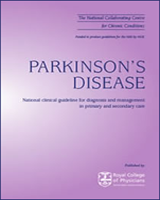A new version of this title is available
This publication is provided for historical reference only and the information may be out of date.
Excerpt
It is almost 200 years since James Parkinson described the major symptoms of the disease that came to bear his name. Slowly but surely our understanding of the disease has improved and effective treatment has been developed, but Parkinson’s disease remains a huge challenge to those who suffer from it and to those involved in its management. In addition to the difficulties common to other disabling neurological conditions, the management of Parkinson’s disease must take into account the fact that the mainstay of pharmacological treatment, levodopa, can eventually produce dyskinesia and motor fluctuation. Furthermore, there are a number of agents besides levodopa that can help parkinsonian symptoms, and there is the enticing but unconfirmed prospect that other treatments might protect against worsening neurological disability. Thus, a considerable degree of judgement is required in tailoring individual therapy and in timing treatment initiation. It is hoped that this guideline on Parkinson’s disease will be of considerable help to those involved at all levels in these difficult management decisions. The guideline has been produced using standard NICE methodology and is therefore based on a thorough search for best evidence.
Acknowledgements: The National Collaborating Centre for Chronic Conditions would like to thank Rob Grant, Susan Varney, Ian Lockhart, Lina Bakhshi, Alison Richards, Jane Ingham, Ester Klaeijsen, Nick Latimer and Bernard Higgins for their work and advice on this project.
The Royal College of Physicians: The Royal College of Physicians plays a leading role in the delivery of high quality patient care by setting standards of medical practice and promoting clinical excellence. We provide physicians in the United Kingdom and overseas with education, training and support throughout their careers. As an independent body representing over 20,000 Fellows and Members worldwide, we advise and work with government, the public, patients and other professions to improve health and healthcare.
The National Collaborating Centre for Chronic Conditions: The National Collaborating Centre for Chronic Conditions (NCC-CC) is a collaborative, multiprofessional centre undertaking commissions to develop clinical guidelines for the NHS in England and Wales. The NCC-CC was established in 2001. It is an independent body, housed within the Clinical Standards Department at the Royal College of Physicians of London. The NCC-CC is funded by the National Institute for Health and Clinical Excellence (NICE) to undertake commissions for national clinical guidelines on an annual rolling programme.
Suggested citation:
National Collaborating Centre for Chronic Conditions. Parkinson’s disease: national clinical guideline for diagnosis and management in primary and secondary care. London: Royal College of Physicians, 2006.
All rights reserved. No part of this publication may be reproduced in any form (including photocopying or storing it in any medium by electronic means and whether or not transiently or incidentally to some other use of this publication) without the written permission of the copyright owner. Applications for the copyright owner’s written permission to reproduce any part of this publication should be addressed to the publisher.
